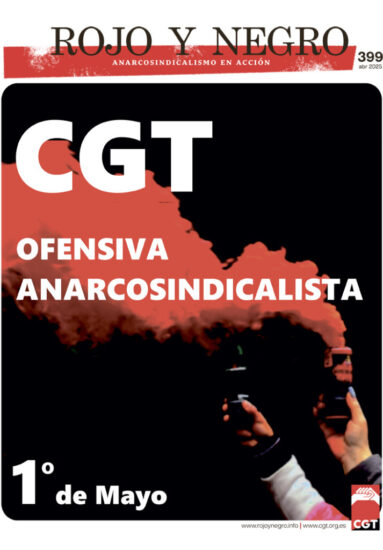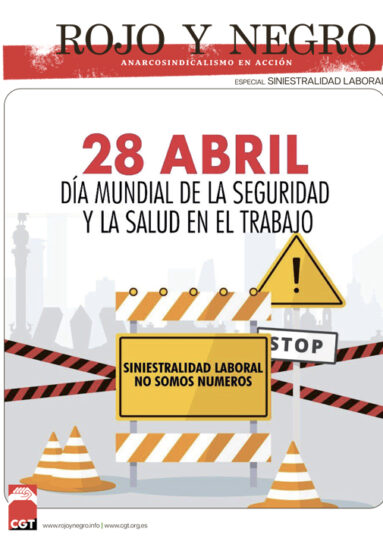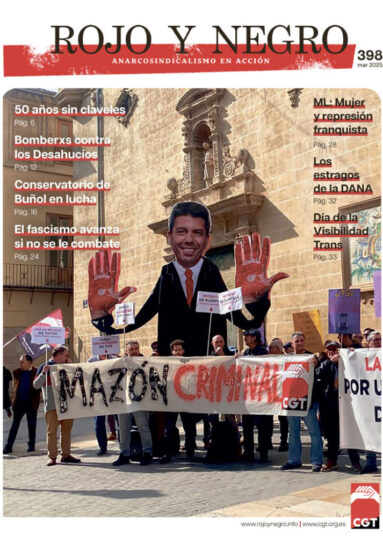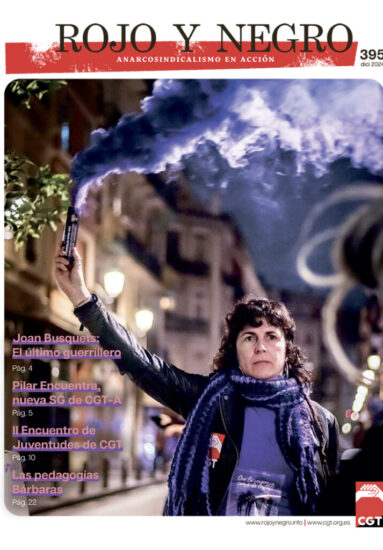Stefan, mi amigo ateniense de tiempos universitarios, me advirtió en vísperas de esta cumbre del G8 : “Olvídate de que pueda haber logros en Heiligendamm ; preocúpate tan solo de que vuestro ‘supremo caudillo’ no se meta en asuntos demasiado peligrosos”. No tuve que devanarme los sesos para entender lo que me decía.
Heiligendamm, el elegante balneario para la nobleza y alta sociedad del pasado, que incluyó a los Káiser alemanes en su esplendor imperial, extendió su alfombra roja este año a los elegidos-kaiseres de los Afortunados7 más el Menor1 : el grupo de ocho.
Esta vez el sarao para la belleza política tuvo de anfitriona a Frau Merkel en esta muy apropiada “Villa Blanca junto al Mar”. Celebridad política puso en escena a Bush, sus cuatro cortesanos europeos (jefes de estado del Reino Unido, Francia, Alemania e Italia), sus dos anclas del Pacifico (los primer ministros de Canadá y Japón) y ese otro tipo que lleva paso lento hacia la democracia… pero con grandes cantidades de armas nucleares y un muy adecuado sistema de “misiles de entrega” : Presidente V. Putin.
Un lujoso viajecito, y muchas posibilidades de momentos de foto, para los mandatarios de ocho naciones que entre si suman el 60 por ciento del producto bruto del planeta (FMI – 2006) con tan solo el 13 por ciento de la población (ONU – estimado, 2007). Pocos pondrán en duda su influencia, pero… ¿sirven para algo estas reuniones ?
La cumbre anual recién concluida fue la 33 ; comenzando con aquella en Rambouillet en 1975, y que continuará en el 2008 en Toyako, Japón. Aunque tan solo he seguido de cerca las agendas de los últimos siete años, durante la presidencia de Bush Hijo, he repasado los resumes de las otro 26 reuniones. Verdaderamente existe un hilo que las une a todas, donde las aspiraciones han sido tan elevadas como las promesas en ayudar a los económicamente menos afortunados ; o los necesitados de paz o justicia social ; o la autoimpuesta obligación de vigilancia del medio ambiente en el planeta. El común denominador ha sido : nobles ideales con resultados entre deficientes y tétricos.
Si hay algo que falla en estas reuniones anuales es la falta de responsabilidad de año a año. Para aquellos entre nosotros que hemos sido miembros de juntas directivas, bien sea en organizaciones con o sin fines de lucro, estas cumbres del G8 parecen carecer de una parte importantísima en el orden del día : asuntos pendientes, algo que para este grupo aparenta ser algo viejo, o muerto. África puede esperar ; así como los enfermos, pobres y beligerantes del planeta ; y puedes apostar que cualquier posible control sobre emisiones de carbono en el mundo serian rápidamente vetadas por Bush.
No se me ocurre de ningún compromiso colectivo por este grupo de naciones ricas y poderosas que se haya conseguido durante más de tres décadas. Algunos programas han tenido mas éxito que otros, pero por lo regular todos se han quedado cortos… muy cortos. Tan solo la cumbre especial sobre seguridad nuclear en abril 1996 en Moscú, que en realidad precedió a la cumbre 22, y que involucró a los G7 y a Rusia, tuvo un nivel de compromiso que se logro llevar a cabo. (Rusia recibiría membresía en 2 años).
Pero apenas dos décadas después que Boris Yeltsin se comprometiese a un modus vivendi con las potencias del occidente, su sucesor, Putin, se encuentra en situación desesperada tratando de copar con las demandas de George W. Bush tanto en Kosovo como en el escudo de defensa contra misiles, que aunque se le cifre como protección contra Irán lleva otras intenciones. Y Rusia no es cabeza de turco para nadie, y así lo demuestra con preocupación crítica.
Kosovo sin duda representa un punto de orgullo debido a las relaciones históricas entre Rusia y Serbia, pero es algo que puede ser negociado y resuelto. Ese no es el caso con las intenciones de EEUU de instalar radar de vigilancia en la Republica Checa y misiles interceptores en Polonia. Tales instalaciones indudablemente socavarían la fuerza disuasiva nuclear de Rusia, algo que se asume esa nación no permitiría.
La insistencia de Putin que EEUU busque otros puntos fuera de Europa del Este para su escudo antimisiles no fue un capricho de Putin para tomar la palestra. Para él esto es algo extremadamente serio ; y Bush y sus aliados, no solamente aquellos en el G8 sino también los otros miembros de la OTAN, deben darse cuenta que este no es un juego de póquer en el que exista una opción a un calculado farol.
La indicada preocupación de Bush de que Irán sea un peligro militar para EEUU es tan infundada como la de antes con Irak, no importa que esta nación eventualmente obtenga habilidad nuclear. Lo único relevante que viene a juego aquí es la seguridad de Israel y su relación parasitaria con Estados Unidos.
Si en vez de trazar una hegemonía conjunta US-Israel en el Medio Oriente, EEUU pusiera su máximo esfuerzo en ayudar a traer una reconciliación de los irreconciliables (palestinos e israelíes), Siria dejaría de ser un problema, así como Irán. Y no cabe duda que la federación rusa no fuera a tener motivos para estar preocupada.
En cuanto a esta última cumbre en el todavía frígido Báltico, poco se puede esperar de ella. Quizás algo mas de ayuda en la lucha contra el sida, vaguedad sobre las emisiones de carbono, y un poco mas de tiempo para resolver el problema entre Belgrado y el primer ministro de Kosovo, Agim Ceku. Aunque estemos acostumbrados a muy pocos resultados positivos de estas reuniones, esperemos que por lo menos no nos caiga encima algo gordo desde Heiligendamm… como la vuelta de la Guerra Fría.
Pero como subraya mi amigo Stefan, “es la naturaleza del liderazgo neoconservador el ir alrededor del mundo dispersando su ‘tyrranoscracia’”. Algo que yo prefiero llamar matonismo… aunque el efecto sea el mismo. Un matón es un matón no importa como le llames.
© 2007 Ben Tanosborn
www.tanosborn.com
G8 Summit : Vagueness, deception… and bullyocracy
Stefan, my Athenian friend from college days, had a warning for me prior to this G8 Summit : “Forget about any accomplishments taking place in Heiligendamm ; just be concerned that your ‘supreme leader’ doesn’t engage in some risky behavior.” And I knew exactly what he meant by that.
Heiligendamm, a fashionable resort for the nobility and high society of old that once welcomed the German Kaisers in their imperial splendor, has extended this year its red carpet to the elected-kaisers of the Fortunate7 plus the Lesser1 : the group of eight.
This time the shindig for the politically beautiful people was hosted by Frau Merkel ; very appropriately, at this “White Town by the Sea.” Political celebritism staged Bush, his four European courtesans (the leaders of the United Kingdom, France, Germany, and Italy), his two Pacific anchors (the prime ministers of Canada and Japan) and “that other slow-on-democracy guy” with beaucoup nuclear weapons and very adequate missilery to deliver them : President Vladimir Putin.
A great junket, and plenty of photo-ops, for the mandataries of eight nations, and their mates, which jointly tally about 60 percent of the world’s Gross Domestic Product (IMF – 2006) but only about 13 percent of its population (UN – 2007 estimate). Lots of clout… few will question that. But do these reunions really have a purpose ?
The summit which has just concluded was the 33rd ; starting with the first at Rambouillet back in 1975, and expected to continue next year in Toyako, Japan. Although I have only followed closely the agendas of the last seven years (Jr. Bush’s presidency), I have gone over the summaries of the other 26 gatherings. And there is definitely a common thread to these meetings, where aspirations have ran high, as have the promises made to help those less fortunate economically ; or those in need of peace or social justice ; or the self-imposed obligation in a vigilant role as caretaker of our planetary environment. The common denominator : lofty undertakings with poor to dismal results.
If there is something truly lacking in theses annual meetings is the lack of accountability from year to year. For those of us who’ve been involved as corporate board members of either profit or not-for-profit organizations, looking at these G8 meetings we seem to be missing the first – and most important – part of their annual get-together ; and that is the initial item in any logical agenda : old business. But old business to the G8 is just that : old. Africa can wait, and so can the sick, poor and warring people in the world ; and you can bet that any concern for carbon emissions is readily vetoed by Bush.
I can think of no proposed joint commitment by this group of rich, powerful nations that has come to fruition during more than three decades. Some programs have had more success than others, but for the most part all have fallen short… way short. Only the special summit on nuclear security in April 1996 held in Moscow, which actually did precede the 22nd summit and involved the G7 and Russia, had the level of commitment that these powers seemed to adhere to. (Russia would receive membership in 2 years.)
But just two decades after Boris Yeltsin came to terms accepting a modus vivendi with the West, his successor, Putin, finds himself in dire straits trying to cope with demands made by George W. Bush on both Kosovo and a missile defense shield that while said to be designed as “protection” from Iran, its intent is far more purposeful than that. And Russia is nobody’s patsy, showing a critical concern.
Kosovo may pose a question of pride because of historical Russia-Serbia relations, but something that could be ultimately negotiated and resolved. Not so, however, US intentions to go ahead with installation of interceptor rockets in Poland and radar screen in the Czech Republic. Such installations would likely undermine Russia’s nuclear deterrent, something which can be easily assumed that country is unwilling to give up.
Putin’s insistence that the US find a location for its missiles shield outside of Eastern Europe was not a podium-grabbing, ego-trip by him. He was dead serious ; and Bush and his allies, not just in the G8 but the other NATO members, should realize that the pot in this poker game is too large to allow an option for calculated bluff.
Bush’s stated concern about Iran posing a military threat to the US is as baseless as his prior concern with Iraq, even if that nation ultimately attains nuclear capability. The only relevant issue that comes into play is Israel’s safety and its parasitic relationship with the United States. Of course, the declaration of Iran’s danger serves in multiple ways.
If instead of charting US-Israel hegemony in the Middle East, the US would put its best efforts in helping bring about the reconciliation of the “irreconcilables” (Israelis and Palestinians), Syria would not be a problem, and neither would Iran. And, rest assured, the Russian federation would have no reason to be up in arms.
As for this last summit in the yet cold Baltic, little can be expected to come out of it. Maybe some help to fight AIDS, vagueness on carbon-emissions, and a little extra time to work things out between Belgrade and Kosovo PM Agim Ceku. Although we are well accustomed to few positive results out of these meetings, let’s hope that, at least, no major negative outcome spills out of Heiligendamm… like a return of the Cold War.
But as my Greek friend Stefan keeps telling me, “it’s in the nature of your current neocon leadership to go around the world spreading tyrranoscracy.” I prefer to call it bullyocracy… but the effect is the same. A bully is a bully by whatever name.
© 2007 Ben Tanosborn
www.tanosborn.com
Fuente: Ben Tanosborn












